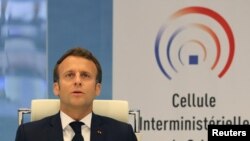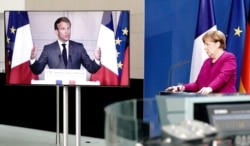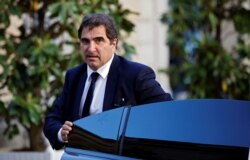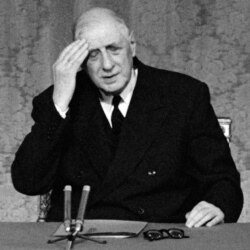The sky-high ratings and talk of a start-up nation are long gone. So is the reformist agenda, pushed through over strikes and demonstrations.
Two years before the next presidential elections, France’s 42-year-old leader, Emmanuel Macron, is struggling to find a second wind, as the coronavirus pandemic and its aftermath shreds the country’s economy and his progressive programs.
Macron’s approval ratings are underwhelming, his unifying rhetoric in dispute. For this week, at least, it seems the only good news has been regional.
On Monday, Macron teamed up with France’s traditional ally, proposing with German Chancellor Angela Merkel a massive bailout for struggling European Union countries. While reactions have been mixed, the announcement offered the president a chance to polish his image as a regional leader.
Whether he can bounce back at home, as he has before, is another question.
“Macron must realize his 2017 program is partly or completely dead,” wrote the country’s respected Le Monde newspaper, “upended by the coronavirus epidemic and its consequences.”
“I think for Mr. Macron, the game is over,” said geopolitical analyst and former French diplomat Philippe Moreau Defarges. “Presidents generally can do many things in the first months or even first year of their term. After that, it’s over.”
Macron faced a fresh setback Tuesday, when his centrist Republic on the Move, or LREM Party, lost its absolute majority in parliament, with the departure of half-a-dozen leftist and ecology-minded members.
To be sure, the fallout was widely expected. And in a landscape where the traditional right and left have been severely weakened, the LREM can still cobble alliances with other smaller parties. Yet, losing the majority was symbolic, analysts say, and underscored a steady trickle of defections in recent months.
“It’s going to impact the image Emmanuel Macron wants to project as a unifier” in the health crisis, Sciences Po Paris political analyst Bruno Cautres told Le Parisien newspaper.
Reforms on hold
Macron’s government has faced sharp criticism over its handling of the coronavirus crisis, which saw the country short of face masks, tests and even some basics such as thermometers and hand sanitizer.
The pandemic has also highlighted a hospital system weakened by funding and staff cuts over successive administrations, problems which sparked massive protests last year.
Visiting a Paris hospital last week and in a rare admission, Macron acknowledged a "mistake" in his hospital reform strategy and promised action. Still other reforms his government rammed through, including a hard-fought battle to overhaul the pension system, are on indefinite hold.
Recent polls show see-sawing public opinion. An early May IFOP survey, reflecting several others, showed Macron’s approval rating falling six points to just 40%. By contrast, the ratings of conservative Prime Minister Edouard Philippe — who has been on the front lines of daily crisis management — were on the uptick and five points more than Macron’s.
Reports suggest relations between the two are tense and competitive, although officially they reportedly view each other with "mutual respect."
“More than ever, France needs stability,” Christian Jacob, head of the conservative Les Republicains opposition party, wrote in Le Monde newspaper. “It doesn’t need a president of the Republic and a prime minister whose relations are marked by poison and defiance.”
De Gaulle redux
Like past presidents right and left, Macron has sought out the legacy of Charles de Gaulle in recent days to rally the country.
Marking a key World War II anniversary last week, he hailed de Gaulle’s courage as a resistance fighter, and called for a renewed spirit of national unity and cohesion in the current crisis.
"De Gaulle tells us that France is strong when it knows its destiny, when it stays united, when it searches the path of cohesion," Macron said at the site of a key battle in northeast France.
But critics say calls for unity are hollow when Macron’s own party is divided. Moreau Defarges doubts Macron shares de Gaulle’s farsightedness as he charts a post-COVID-19 recovery.
“He will be both populist and conservative,” predicts Moreau Defarges on how Macron will finish his term. He describes the government’s stimulus package to reboot the economy as “we give money, and after that, we will see.”
But for now, polls show that Macron faces no major mainstream rival. France’s traditional right and left imploded during the 2017 elections.
He has also bounced back from previous crises, including monthslong yellow vest demonstrations over social and economic disparities. Last year, Macron announced a "Great Debate" giving French a say in finding solutions, which helped diffuse tensions.
He could still pull another surprise solution “out of his hat,” Le Monde wrote, among other options moving forward.
“I think he’s convinced that during these two small years, he can climb back,” Moreau Defarges said. “But it’s not sure.”








